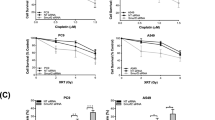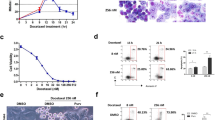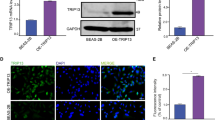Abstract
Expression of survivin has been reported to be correlated with shorter survival in patients with non-small cell lung cancer (NSCLC), and overexpression of survivin may lead to radioresistance in various human cancers. In this study, we inhibited survivin expression by using an adenoviral vector (AdsiSurvivin)-mediated RNAi to elucidate the combined effect of survivin-targeting gene therapy and radiotherapy on the NSCLC cells. Our data revealed that AdsiSurvivin exerted survivin gene silencing, induced apoptosis, and significantly attenuated the growth potential in NSCLC cells within 72 hours after infection. The combined treatment modalities with AdsiSurvivin infection and radiation were significantly more potent on cell-growth inhibition than monotherapy. In H1650, H460, A549, and H1975 human NSCLC cells, the survival ratios of AdsiSurvivin-treated groups at m.o.i. of 25 and 50 were significantly lower than those of control groups at varying radiation dose (0~8 Gy; three-way ANOVA, p < 0.05). The cytotoxicity of combined AdsiSurvivin infection and irradiation increased in a dose-dependent manner in both the virus and the irradiation treatment. Knockdown of the survivin gene expression appears to be a promising treatment strategy for NSCLC. Our data warrants the need for further effort to develop survivin-targeted radiosensitizer for lung cancer treatment.
Similar content being viewed by others
Article PDF
Author information
Authors and Affiliations
Corresponding author
Rights and permissions
About this article
Cite this article
Yang, CT., Li, JM., Weng, HH. et al. Adenovirus-mediated transfer of siRNA against survivin enhances the radiosensitivity of human non-small cell lung cancer cells. Nat Prec (2008). https://doi.org/10.1038/npre.2008.2589.1
Received:
Accepted:
Published:
DOI: https://doi.org/10.1038/npre.2008.2589.1



